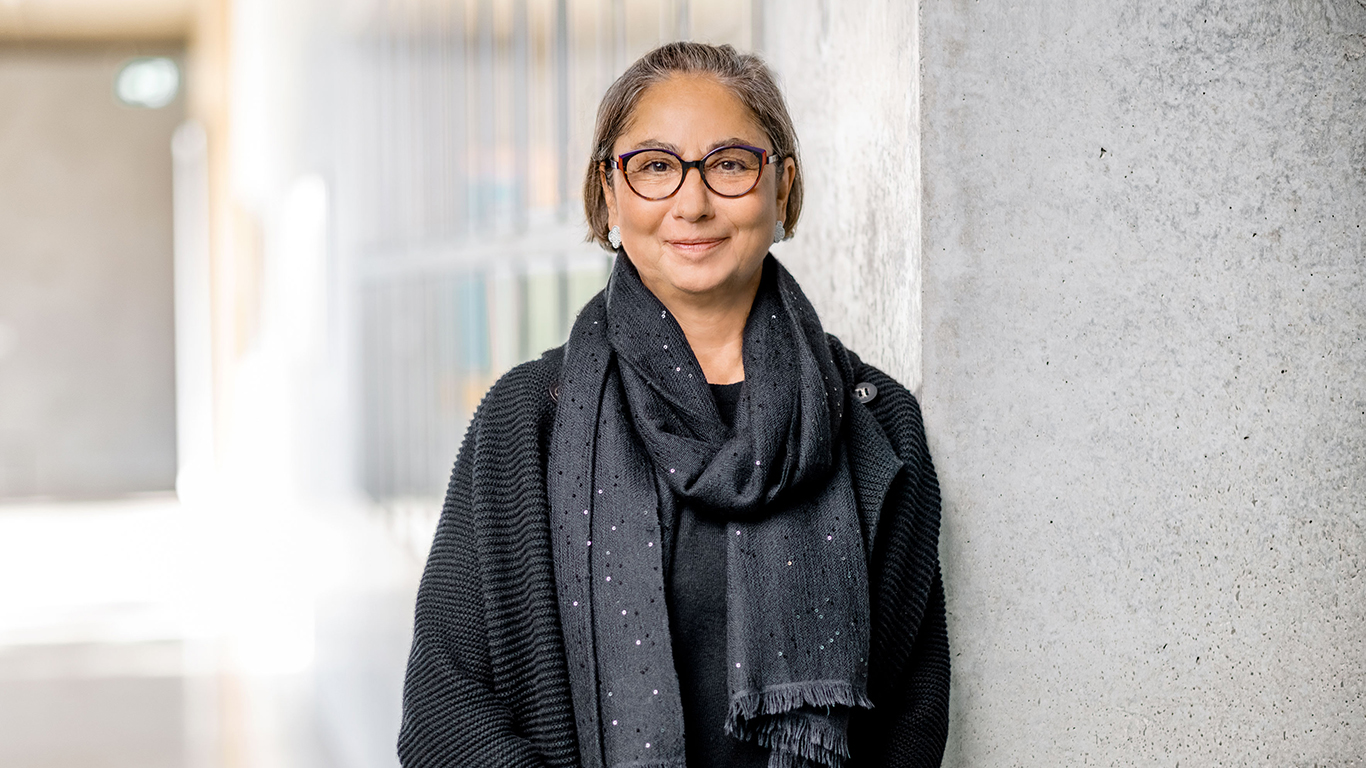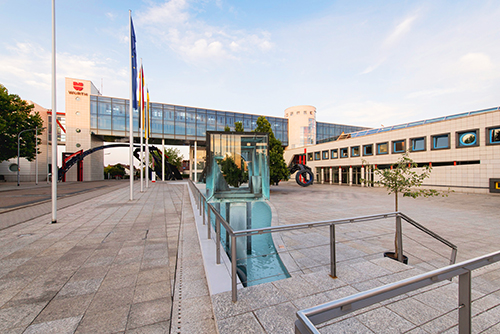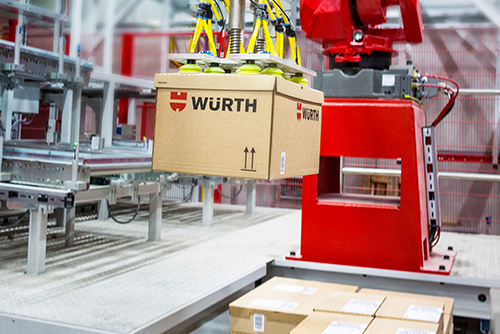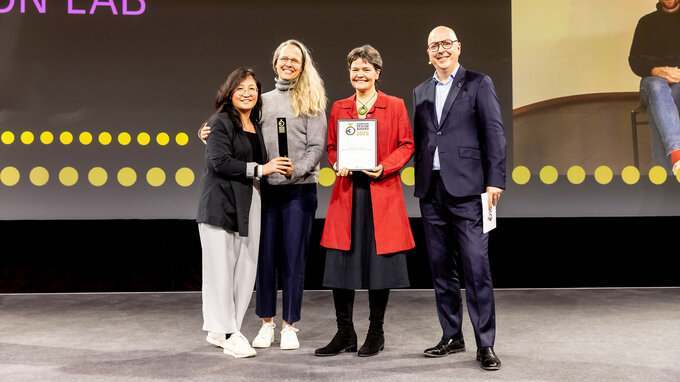Bettina Würth


Bettina Würth completed her apprenticeship in industrial management at Adolf Würth GmbH & Co. KG after finishing her secondary education and has worked in various roles within the Würth Group. In 1997, she expanded sales activities and joined the management of Adolf Würth GmbH & Co. KG. In 2000, she was appointed member of the Central Management Board of the Würth Group. Since 2006, she has served as Chairwoman of the Advisory Board of the Würth Group and holds various positions, including roles on the board of the Federation of German Industries (BDI), the Germany-Switzerland Chamber of Commerce, the CDU Economic Council, and UNICEF Germany.
Jury Statement
Bettina Würth has been committed to enhancing sustainability in industry for years. As Chairwoman of the Advisory Board of the Würth Group, she leads by example with a strategy focused on climate neutrality since 2017. Her approach includes CO₂ reduction through renewable energy, shifting the company fleet to electric vehicles, and introducing cradle-to-cradle products alongside full digitalization to expand e-commerce and streamline transport. Trained in industrial management within the company founded by her grandfather, Adolf Würth, she recognized early on that an authentic and credible sustainability strategy benefits the climate, environment, and people—and is a key to long-term business success. With over 88,000 employees and EUR 20 billion in sales in 2023, Würth leads the global market in assembly and fastening materials, with a positive environmental impact that sets an example for other companies. This impressive achievement earned Bettina Würth an award from the jury of the German Design Award 2024.


Interview
Ms. Würth, in 2006 you took over from your father Reinhold Würth as Chairwoman of the Advisory Board of the Würth Group, but your career with the company started much earlier. You trained here as an industrial clerk. Was your current role always the goal?
I grew up with the company. Through my training and various roles within Würth, I got to know the people and fell in love with sales. My career developed naturally, and things fell into place.
Sustainability is now a top priority for all business leaders. When did it first catch your attention?
Sustainable business is in our DNA and is a key part of our corporate culture. Our customers value the durability and quality of our products. They rely on Würth, and their expectations drive us. Through our Curio Innovation Center, we focus on sustainable R&D. For example, the ABS 18 Compact and ABS 18 Subcompact M-CUBE cordless drills, along with their 18V batteries and ORSY® system case, are the world’s first power tools certified as Cradle to Cradle®. These products, designed for full recyclability, represent a true step forward.
When you introduced the Cradle to Cradle principle into company strategy in 2017, it was revolutionary. Did you need to convince others, or were they already on board?
Sustainability works only if we’re all in it together. It’s not a coincidence or a by-product of normal business operations, but a fundamental requirement of our society that demands consistent action from all of us. We’ve always believed in this at Würth. Our VARIFIX® quick mounting system is the first Cradle to Cradle®-certified mounting rail program worldwide. After use, it can be dismantled into its original materials and recycled. VARIFIX® was the prelude to many other sustainable Würth products.
You even created a circular solution for workwear. How does this long-term strategy affect the Würth brand?
Our goal is for circular economy practices to be inseparably linked to Würth’s brand. We want to support customers with solutions that address rising regulations or societal challenges like sustainable construction. We expanded the VARIFIX® concept to modular solutions for large construction sites, where built-in modules can be reclaimed and reused in circular systems. If we then manage to retrofit existing buildings instead of having to demolish them, we will have achieved even more. For example, Würth developed an innovative method to add load-bearing capacity to older industrial roofs, enabling them to support photovoltaic panels essential to the energy transition. These new challenges are our responsibility, and we think along these lines.
The Adolf Würth GmbH & Co. KG aims to achieve climate neutrality in Scope 1 + 2 by 2024. What major steps have you taken, and how is the progress?
Climate action is central to our transformation strategy. As a global corporation with over 400 companies in 80 countries, we’re focused on gathering relevant data and building the supporting infrastructure and reporting systems. When we set our climate neutrality goal, offsetting greenhouse gases was standard. But we aim to go further: to avoid and reduce emissions wherever possible. For example, we’re expanding our electric fleet and increasing PV capacity, generating over 110,000 kW peak across our German locations in 2023, covering 99 million kilowatt hours of electricity. Nearly all this PV power is used by Würth locations.
How did you communicate your sustainability plans across thousands of employees?
Sustainability is embedded in our daily business. During a digital conference, we presented our sustainability strategy to all companies of the Würth Group and there is a sustainability manager in every company. Through events, newsletters, and best-practice discussions, we keep our team involved. They are the core drivers of this transformation, interpreting data, developing actions, and steering our shift from a linear to a circular economy.
In terms of social sustainability, Würth also takes great responsibility. Could you share some of the projects especially important to you?
The Würth Group and the charitable Würth Foundation assume responsibility for society in many ways and contribute to a future worth living with small and large initiatives. Recently, the Foundation’s 6th Music Festival for people with and without disabilities took place—a wonderful event! My mother, along with my father, established the Foundation in 1987, which supports a range of projects in arts and culture, education, research, and social integration. In 2022, Würth opened the Reinhold Würth Innovation Center CURIO in Künzelsau.
Could you tell us more about it?
The Reinhold Würth Innovation Center CURIO was created to bring pioneering new products and systems to market faster and in a more customer-specific way. Opened in 2022, the 15,500 square meter facility houses advanced climate chambers, workshops, and one of the world’s most powerful testing centers for fastening technology, power tools, and IoT. Around 250 employees work here from the product management, quality assurance, and R&D of Adolf Würth GmbH & Co. KG and the Group’s manufacturing companies. They collaborate with external researchers through university partnerships. This cluster of expertise speeds the transfer of academic research into industry-ready solutions.





